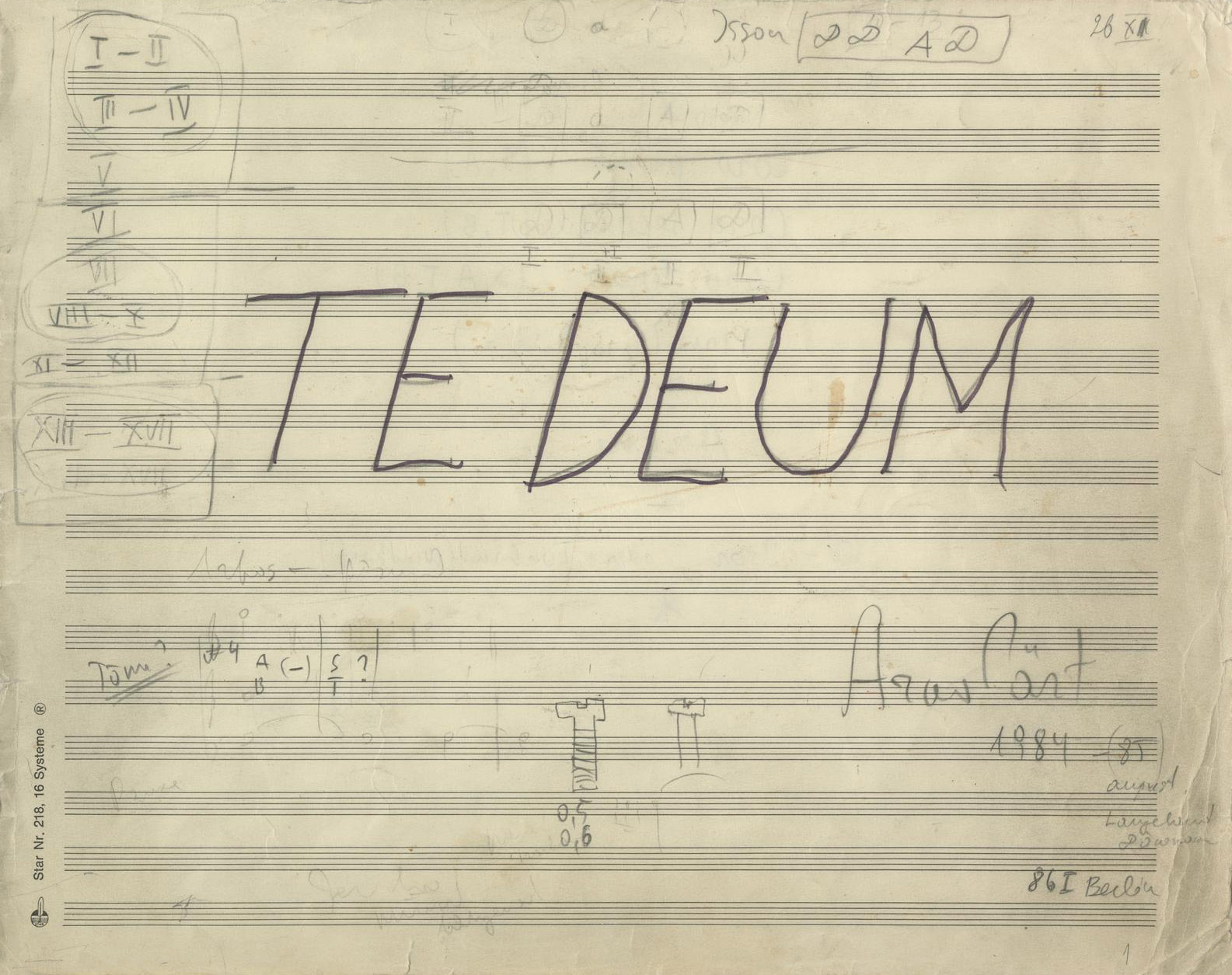Scored for
Duration
30 min
Short description
Arvo Pärt: "Te Deum was a quest for something evanescent, something long lost or not yet found, a quest for something believed to be non-existent, but so real that it exists not only within us but beyond our being as well."
Many vocal works by Arvo Pärt are composed for liturgical or prayer texts. Te Deum was based on an early Christian hymn from the late 4th century AD, also known as the Ambrosian Hymn. The text’s 29 lines are divided into 17 parts which in turn are combined into three main groups. However, these divisions can be hardly heard when listening to the work. Rather, they form a vivid whole in the listener’s perception. Each line of verse is first presented by a men’s or a women’s choir as a free melismatic melody that resembles a Gregorian chant.…

Estonian Philharmonic Chamber Choir, Tallinn Chamber Orchestra, Tõnu Kaljuste (conductor). CD Te Deum.
© ECM New Series 1505
World premiere
Concert: Orchesterkonzert
Dennis Russell Davies (conductor), Cologne Radio Symphony Orchestra , Radio Choir Cologne
Completion year
Revision year
Dedication
Commissioned by
Scored for
Duration
Publishers
Language
Vocal text
Te Deum laudamus, te Dominum confi temur.
Te aeternum Patrem omnis terra veneratur.
Tibi omnes Angeli, tibi caeli et universae Potestates.
Tibi Cherubim et Seraphim incessabili voce proclamant:
Sanctus, Sanctus, Sanctus Dominus Deus Sabaoth.
Pleni sunt caeli et terra majestatis gloriae tuae.
Te gloriosus Apostolorum chorus,
te Prophetarum laudabilis numerus,
te Martyrum candidatus laudat exercitus.
Te per orbem terrarum sancta confi tetur Ecclesia.
Patrem immensae majestatis;
venerandum tuum verum et unicum Filium;
Sanctum quoque Paraclitum Spiritum.
Tu rex gloriae, Christe.
Tu Patris sempiternus es Filius.
Tu, ad liberandum suscepturus hominem, non horruisti Virginis uterum.
Tu, devicto mortis aculeo, aperuisti credentibus regna caelorum.
Tu ad dexteram Dei sedes, in gloria Patris.
Judex crederis es…

